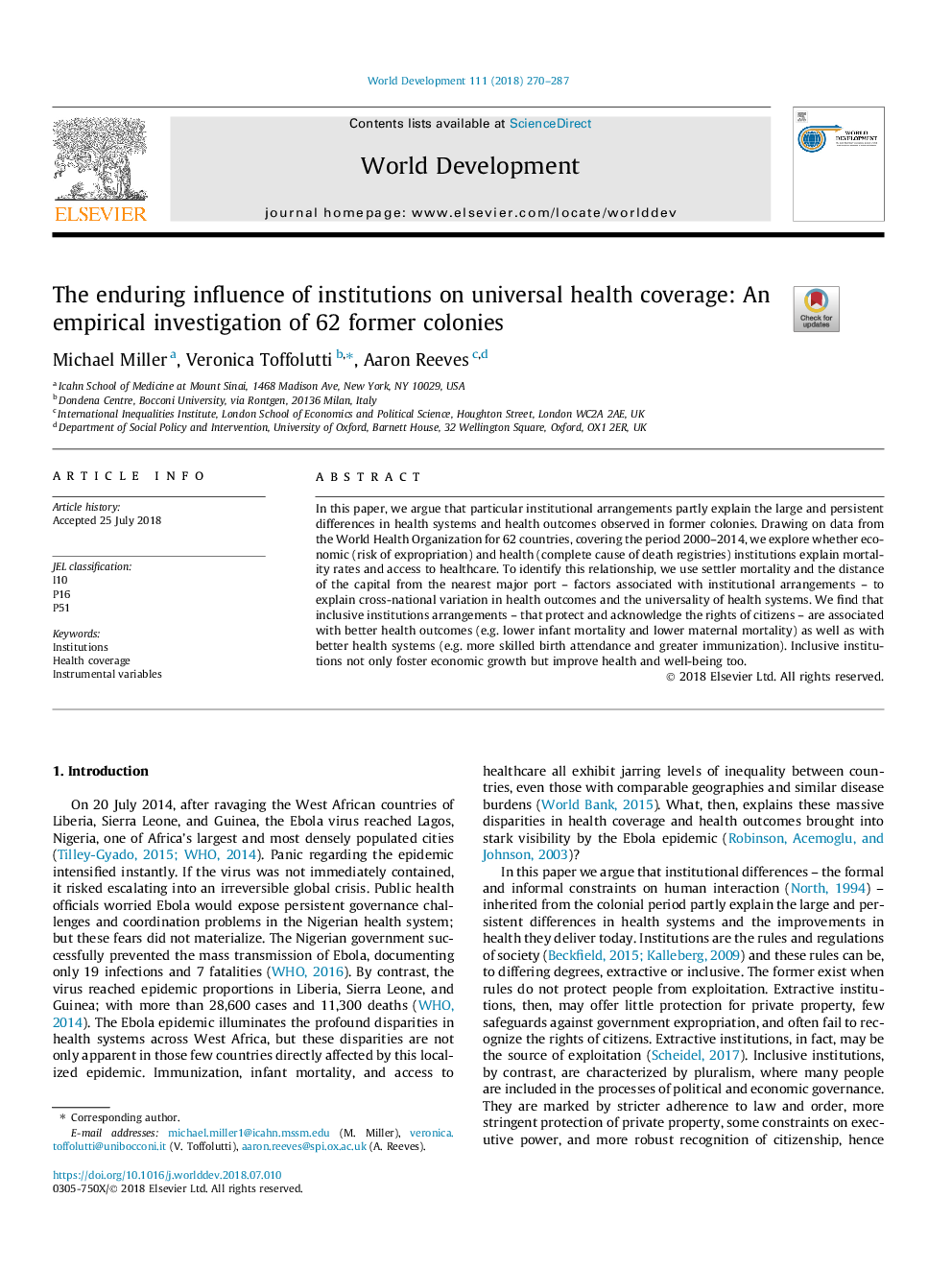| Article ID | Journal | Published Year | Pages | File Type |
|---|---|---|---|---|
| 7391185 | World Development | 2018 | 18 Pages |
Abstract
In this paper, we argue that particular institutional arrangements partly explain the large and persistent differences in health systems and health outcomes observed in former colonies. Drawing on data from the World Health Organization for 62 countries, covering the period 2000-2014, we explore whether economic (risk of expropriation) and health (complete cause of death registries) institutions explain mortality rates and access to healthcare. To identify this relationship, we use settler mortality and the distance of the capital from the nearest major port - factors associated with institutional arrangements - to explain cross-national variation in health outcomes and the universality of health systems. We find that inclusive institutions arrangements - that protect and acknowledge the rights of citizens - are associated with better health outcomes (e.g. lower infant mortality and lower maternal mortality) as well as with better health systems (e.g. more skilled birth attendance and greater immunization). Inclusive institutions not only foster economic growth but improve health and well-being too.
Related Topics
Social Sciences and Humanities
Economics, Econometrics and Finance
Economics and Econometrics
Authors
Michael Miller, Veronica Toffolutti, Aaron Reeves,
